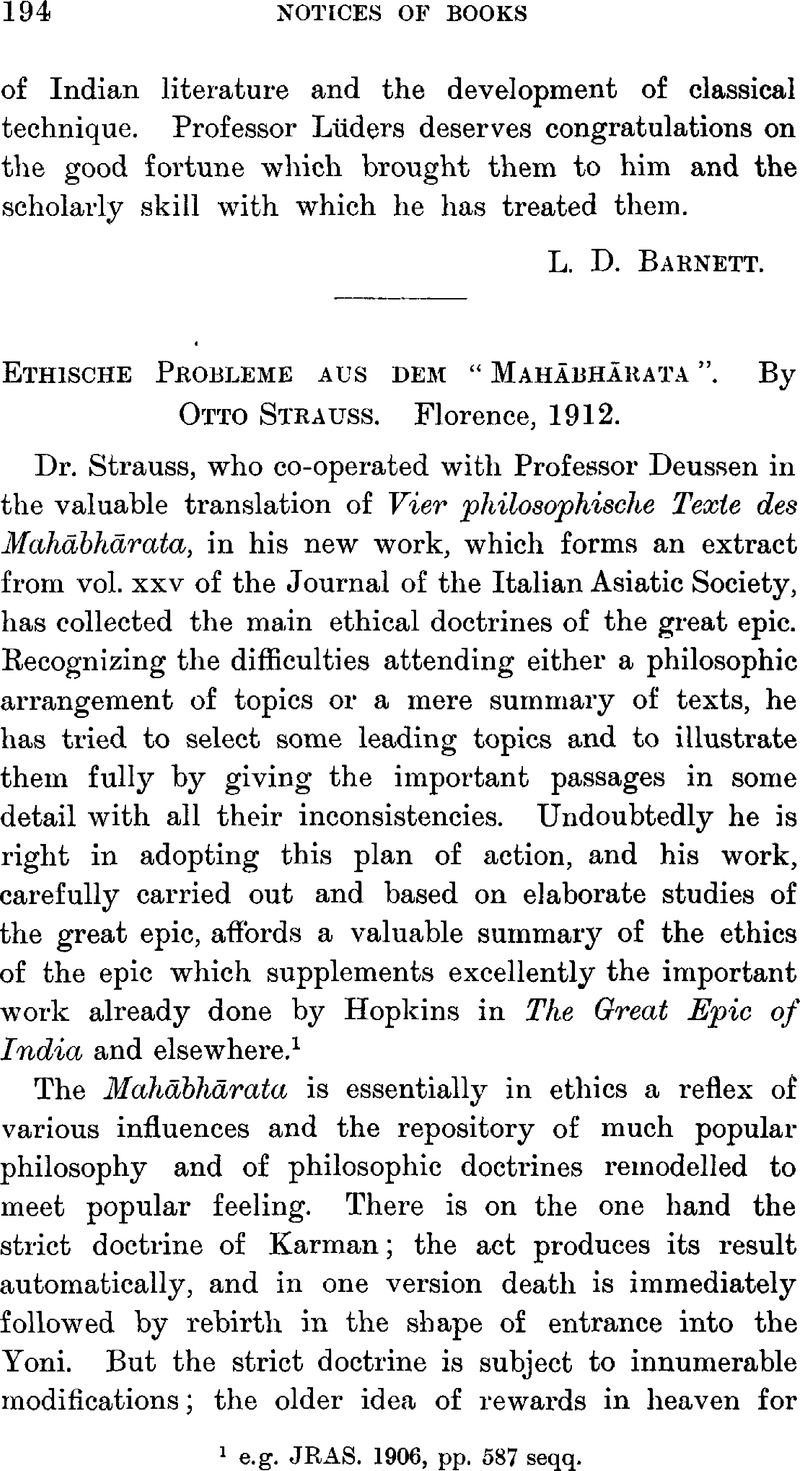No CrossRef data available.
Published online by Cambridge University Press: 15 March 2011

page 194 note 1 e.g. JRAS. 1906, pp. 587 seqq.Google Scholar
page 195 note 1 How far this view is really independent at any time of the other it is impossible to say. Both can coexist, and that in any one passage the one is independent cannot be proved, or effectively denied.
page 195 note 2 Aus dem alten Indien, pp. 1Google Scholar seqq. (a criticism of Pischel's view of mettā).
page 196 note 1 See pp. 326–35. It is of interest to compare these efforts with the Aristotelian doctrine of slavery as only justifiable on the ground of the moral superiority of the master.
page 196 note 2 In his translation (Leipzig, 1905).
page 196 note 3 Especially in JRAS. 1905, pp. 384–9.Google Scholar
page 196 note 4 Great Epic of India, p. 174.Google Scholar
page 196 note 5 Ibid. p. 266.
page 196 note 6 Allg. Gesch. d. Phil. i, 3. 90.Google Scholar
page 197 note 1 ZDMG. lxiv, 336–40.Google Scholar
page 197 note 2 Schrader (ZDMG. Ixiv, 333–5) has sought to show that Yājñavalkya in the Bṛhadāraṇyaka Upaniṣad, iii, 2. 13Google Scholar, and iv, 4. 2–6, does not teach metempsychosis. The attempt is a failure; it contradicts the Mādhyandina text, which is perfectly clear, and it causes the author to adopt a series of alternative and improbable explanations of the words anyeṣāṃ vā bhūtānām, which naturally include men, and to deny that sādhur bhavati can mean “he is born again as good”, though he admits it can mean “he reappears (in the world) in favourable circumstances”.